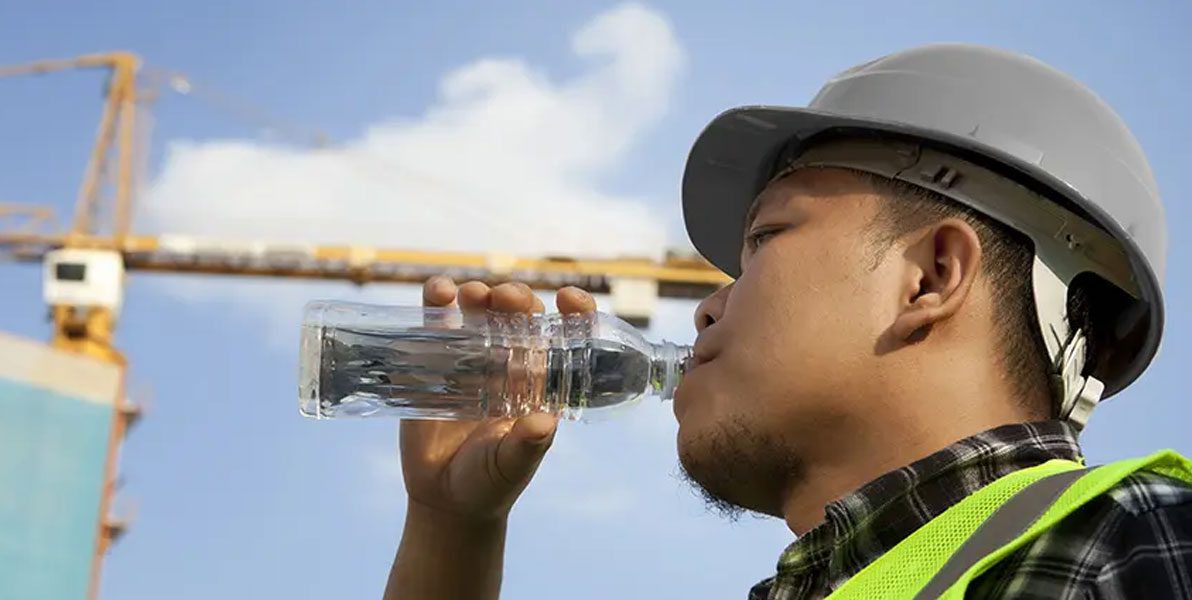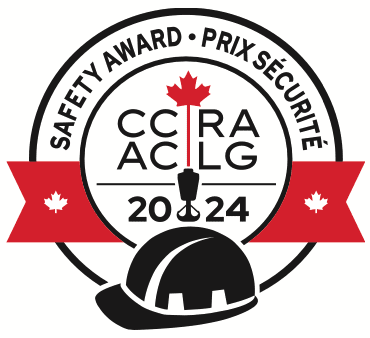Top Takeaway:
High temperatures are the greatest challenge for jobsites in the summer. Make sure everyone on site is hydrated, eating well, and taking time to cool down to prevent heat stress.
Summer is here, and with it comes long days and hot weather. Warmer temperatures can be exciting but are also hazardous for those who work outside or in the heat. Heat stress is a serious threat on a jobsite, so check out these best practices to stay safe this season.
1. Have a plan.
The best way to keep your jobsite running safely and smoothly this summer is to be prepared. Consider supplying additional cooling PPE for your crew, such as fans or cold packs, and organize working hours to avoid the hottest part of the day.
2. Stay hydrated and wear sunscreen.
These are the two simplest ways to avoid heat illnesses and protect your health in the long term. Drink enough water (most doctors recommend eight glasses a day) and continuously apply sunscreen to protect yourself from the heat and UV radiation.
3. Respect the sun, love the shade.
Exposure to sunlight is inevitable in the summer, but it should be avoided when possible. Create shaded areas with good air-flow to prevent sunburn and heat-related illnesses.
4. Dress right.
Sleeveless may seem the way to go on a burning day, but exposed skin means a higher risk of sunburn and sunstroke, and could even lead to skin cancer in the long term. Instead of losing layers, wear loose-fitting clothing made of breathable material, a hat with a brim, and sunglasses that block UV rays. These steps will guard your health and keep you cooler in the long run.
5. Eat right.
It’s natural to crave sugary drinks and icy treats in the summer heat but these foods will sap your energy as you digest them and leave you with a sugar crash. Choose healthy, energizing foods, like fresh fruit or low-sugar granola bars and stick to water as your drink of choice.
6. Allow for acclimatization.
If an employee is new or has been off work for a while, their bodies will need time to adjust to the summer’s heat. Start them with reduced time spent in high temperatures and increase it slowly. An acclimatized body will be able to better handle heat exposure and is less likely to suffer from heat stress.
7. Stay cool.
It’s important to allow your body to cool down after spending extensive time in the heat. Prepare air-conditioned break rooms and encourage your crew to spend time indoors after work to prevent the effects of heat stress.
8. Plan for the next day.
Your habits outside of work will also affect your ability to operate in the heat. Avoid overindulging on coffee or alcohol after-hours, as these will continue to have dehydrating effects on your body the next day.
9. Watch for symptoms.
Heat stress can progress quickly once it has begun and, if left untreated, can require time off work to recover from. Watch out for dizziness, nausea, headaches, cramps, elevated pulse, and if sweating stops. If you notice any of these symptoms, take a break in a cool area and drink lots of water. If a person becomes unresponsive, call 9-1-1 immediately.
10. Educate your crew.
While it’s important to pay attention to the health of your crew, it’s impossible to monitor everyone onsite at all times. Make sure your staff are trained to recognize the signs of heat stress and treat it immediately.
11. Know when to call it.
Some days are just too hot to work. It may be frustrating to end a workday early, but it will be more productive in the long run to preserve the health of your employees. There’s no legal cut off for when it’s too hot to work, so monitor the heat and your crew’s condition to make the wisest choice.
For more information on heat stress and how to prevent it, read WorkSafeBC’s free guide here.







